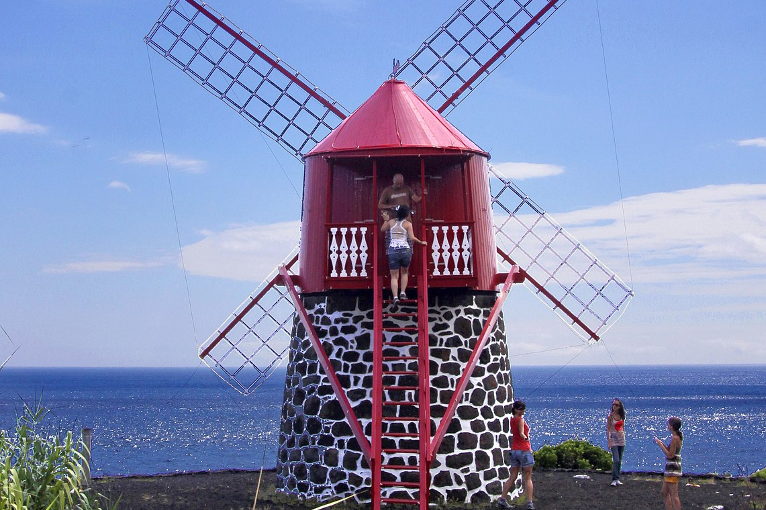(Conversation Recorded on August 11, 2022.)
On this episode, we meet with inventor, researcher and author Kris De Decker to understand the concept of “low tech” and its relevance in a high tech society and growth-driven economy.
How does low tech differ from high tech and what does it feel like to live a low tech lifestyle? Why do we assume high tech will always be the solution, and could low tech be a feasible path for a sustainable and fulfilling future?
De Decker shares his personal experiences as a low tech advocate and researcher in a high tech urban environment and how freedom from technology provides both challenges and unexpected benefits.
About Kris De Decker
Kris De Decker shifted from a journalism career covering high tech to exploring low tech through formal and personal research and projects, including the Human Power Plant and the Solar Powered Website.
De Decker is creator and author of Low Tech Magazine and No Tech Magazine, publications which explore low tech solutions to questions society assumes must be solved through high tech.
De Decker has contributed articles about science, technology, energy and the environment to Mother Earth News, Techniques et Culture, Design Magazine, The Oil Drum, Resilience, EOS, Molenecho’s, “Knack”, “De Tijd” and “De Standaard”. De Decker’s books “Energie in 2030” advised the Dutch government on challenges related to science and technology and his book “Stralingswarmte: gezonde warmte met minder energie” provided a guide for how heat works.
De Decker was born in Antwerp, Belgium and lives in Barcelona, Spain. De Decker describes himself as “rather inactive” on Twitter and LinkedIn.
Show Notes & Links to Learn More
00:45 – Kris’s info, work, and publications
01:51 – Low-Tech magazine and The Oil Drum
03:07 – Luddite for not using a smart phone
03:22 – Innovation of the bicycle
05:10 – Algae fuel technology
06:56 – Energy used by air conditioners
07:03 – Happiness and rewards of living a low tech lifestyle
07:20 – European energy crisis
07:23 – Solar power
07:48 – Time spent using technology
09:09 – Social media grabs the attention-seconds of our brain
09:48 – Average number of items plugged into American household
10:50 – Living with no baseload, intermittent generation and low tech solutions
11:05 – What role will renewable energy play in society in the future
11:22 – Energy sources – nuclear, solar, wind, fossil fuels
11:41 – Solar panels and wind turbines are all dependent on fossil fuels
13:31 – Renewables don’t fit our economic system which requires growth and energy for growth
14:05 – We will continue to change rules and print money to grow until we can’t
14:30 – Hybrid technology
16:17 – Solar 5kw system
16:51 – 100x more exosomatic energy than what a human body needs
17:48 – Decarbonization
18:05 – Energy storage
18:30 – Solar energy batteries last just a few years
18:40 – Adjust energy use to fit the weather and the seasons
19:26 – Finland discussing an energy descent
19:50 – Finland’s low population density and energy from nuclear, biomass, hydro
22:17 – Recent French election and Communist Party
23:45 – Kris’s Solar Powered Website Project and Human Power Plant Project
29:02 – Ghana slums and death from dysentery
29:37 – Powering the internet using renewables
30:18 – Solar powered internet
31:19 – The internet is designed to be addictive
32:47 – Sri Lanka and technology
33:14 – Long distance wi fi technology
34:09 – DJ White
34:14 – Humans are baseload
35:34 – A low tech lifestyle
37:18 – The majority of the world is not enjoying benefits of hi tech
37:42 – Hi tech is mainly serving financial motives
38:24 – French car Citroën
39:28 – Current weight of cars compared to weight of cars in 1970s
40:22 – Risk adjusted return
40:57 – Joseph Tainter
41:47 – London hospital data centers crashes due to heat
42:27 – Digital money to cash ratio
42:53 – Percent of things connected to the internet [IoT]
45:11 – Energy blindness
45:21 – Dependency on Russian energy
45:31 – 6 Continent Supply Chain
46:16 – How much energy does a human really need?
46:57 – European food production
47:40 – Reduced food production in Belgium
47:44 – Food production debate in the Netherlands
47:50 – Industrialized agriculture
48:43 – Wet bulb temperature
50:47 – Thermal insulation of the body [thermoregulation]
51:14 – Thermal comfort through history
52:08 – Temperature when too hot for a fan to provide cooling benefit
52:16 – Spain law limits air conditioning
53:08 – How much energy a fan uses
53:21 – Heat stroke
53:50 – Cities and heat
54:37 – Antwerp redesign of Operaplein town square
57:27 – Etsy website sales revenue
1:00:05 – Indigenous people living in the Amazon forests
1:01:50 – Global climate impacts
1:03:42 – Threat of Russia cutting gas supply to Europe
1:06:08 – What the car has changed
Teaser photo credit: Windmill in the Azores islands, Portugal. By Guillaume Baviere from Helsingborg, Sweden – 2010-07-21Uploaded by tm, CC BY 2.0, https://commons.wikimedia.org/w/index.php?curid=82316124






